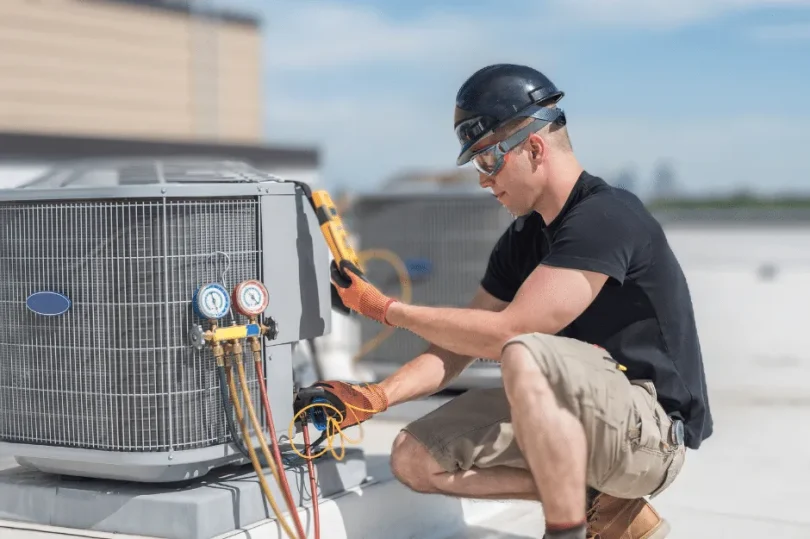Ask most successful HVAC technicians how they’ve managed to get where they are, and you’ll almost always get the same answer: a mix of classroom training, hands-on experience, and advice passed down from fellow technicians.
Textbooks and manuals give you the science, but they never cover everything. By everything, we mean the small, practical tips that are only learned through hands-on experience. You need these insights to avoid common mistakes, work faster, and provide customers with service that keeps them coming back.
So, let’s dive into some of the practical HVAC wisdom from techs who’ve been in the trenches.
Contents
1. Keep Learning, Even After Certification
This one’s a serious one. The HVAC industry is just like many other industries, and that simply means it keeps changing. New equipment like high-efficiency units, eco-friendly refrigerants, and smart thermostats keep entering the market, and you must know how to use them. That’s one of the main reasons for engaging in continuing education.
Not only that, but the licensing board in Alabama requires all licensed contractors to complete at least 4 hours of approved Alabama HVAC continuing education by December of each year. Don’t view this as an unnecessary inconvenience from a board that hates to see you practise in peace. With the constant changes, your pre-licensing course is far from being enough to cover your educational needs throughout your career.
2. Trust Your Meters Over Your Gut
If you’re just beginning, you’re yet to find out this. But for the experienced HVAC technicians, you already know that you’ve developed instincts over time. There will be times when you feel like you should just go ahead and trust your gut feelings alone, but this can end up being one of the most costly mistakes you’ve ever committed.
A system may sound “fine”, but if you’re not getting proper readings from gauges and multimeters, you’re guessing. It’s as simple as that! So, always check pressures, temperatures, and electrical values before making a diagnosis. This not only ensures accuracy but also builds trust with your customers.
3. Keep Your Tools Clean and Organised
This may sound simple, but it’s advice repeated countless times by seasoned techs. A cluttered tool will only slow you down, and dirty tools always compromise performance and safety. So, wipe down gauges, calibrate your meter regularly, and arrange your tool belt so that the essentials are always within reach.
When on-site and racing against time, efficiency often comes down to whether you can get the right tool without rummaging.
4. Develop a Habit of Listening to the System
Yes, we’ve stressed the need for relying on your instruments, but that doesn’t mean you ignore what the system is “telling” you. Everything that’s unusual, from strange vibrations to unexpected noises and even unusual odours, all point towards something that needs to be rectified.
For instance, a faint burning smell can point to an electrical issue, while uneven airflow might indicate ductwork problems. Listening carefully during inspection is, therefore, the right way to get the head start you need before pulling out your testing equipment.
5. Don’t Overlook Airflow Basics
It’s not uncommon for newer techs to jump straight into compressors or refrigerant levels when troubleshooting. Many seasoned technicians will, however, tell you to always start with airflow. Dirty filter, poorly sized systems, and blocked ducts are often the culprits behind many customer complaints.
So, make sure to keep airflow at the top of your checklist if you want to save time and avoid unnecessary repairs that won’t solve the problem.
Set the Right Foundation for Your HVAC Career
The beauty of the HVAC trade is that you will always be learning. It may be from manuals, training, or even from each other, but the fact is, you’ll always keep learning. So, go out there, invest in the right education by taking your prelicensing and continuing education courses from rocketcert.com, and be sure to use the tips we’ve shared here to excel in your career.







